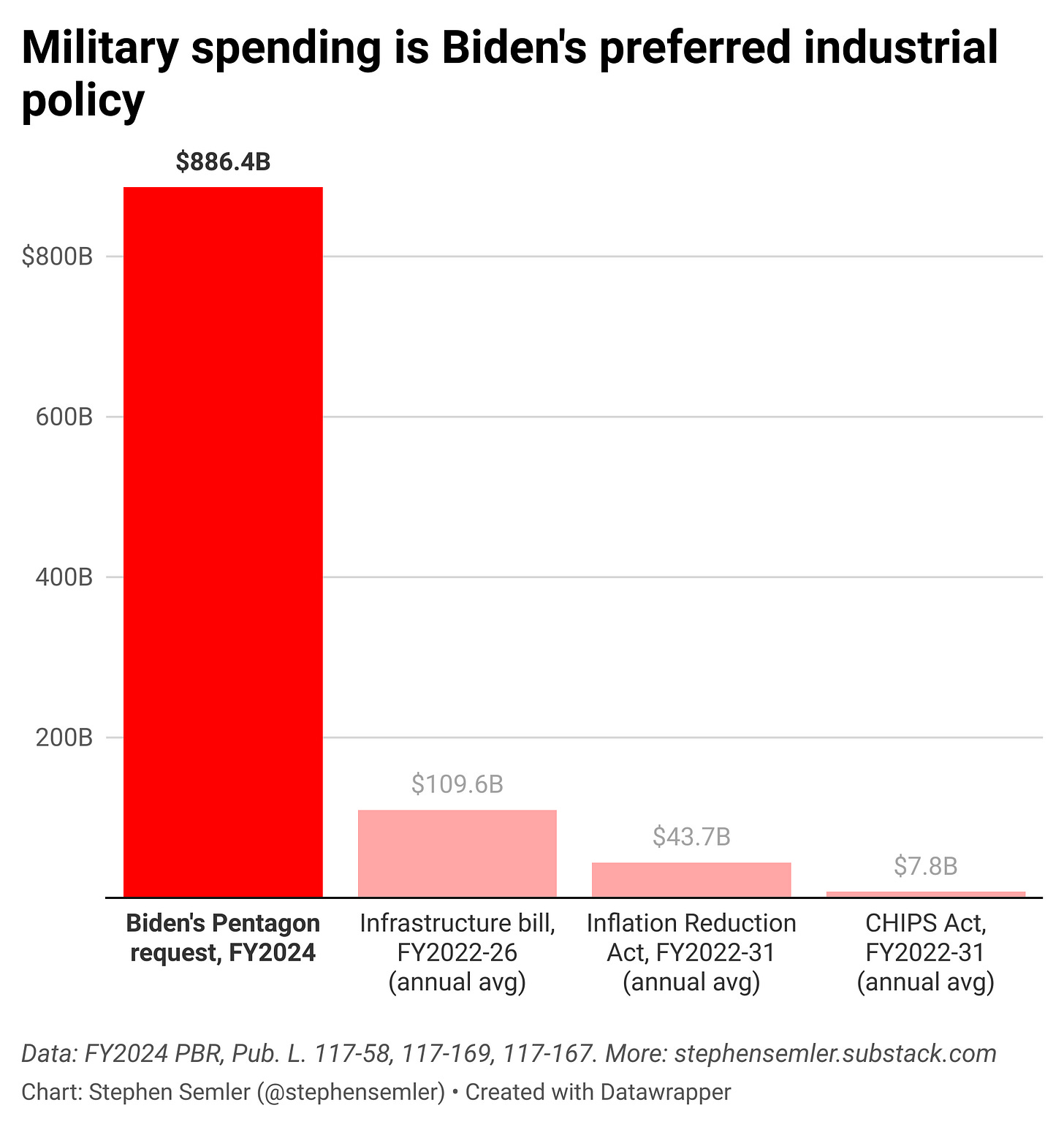Biden’s industrial policy
Speaking Security Newsletter | Note n°199 | 14 March 2023
If you find these notes useful, you can support this newsletter and SPRI, here.
Industrial policy
There’s no formal definition, but industrial policy commonly refers to government intervention designed to support a particular sector of the economy. The industrial policies a government deploys depend on what kind of economy it ultimately wants to have. It’s a hot term right now in the US, frequently invoked in coverage of the recently-passed infrastructure, climate, and semiconductor bills.
Discourse vs. funding
Most of the comments I’ve read on Biden’s industrial policy seem to implicitly assume that the US didn’t already have such a policy. A Washington Post columnist writes that with the Infrastructure Investment and Jobs Act and Inflation Reduction Act, “[w]e now have the closest thing…to a real industrial policy in decades.” In the Times, a former Obama administration official claims that the CHIPS Act is “the government’s largest foray into the private sector since World War II.”
In reality, military spending has been the US’s predominant industrial policy since the Cold War, and Biden is intent on keeping that way: consider the enacted military budgets for fiscal years 2022 and 2023, and the $886 billion Pentagon funding request he proposed a few days ago. Though Biden’s investments in infrastructure, climate, and microchips are indeed historic, they’re much less remarkable than they’re made out to be—especially when compared alongside the industrial policy he’s invested in the most. This makes me sad.
^Alt text for screen readers: Military spending is Biden’s preferred industrial policy. This chart has four red columns. The disproportionately large one represents the $886.4 billion Biden requested for the Pentagon for fiscal year 2024. Next to it are columns that display the average annual funding for the infrastructure bill, $109.6 billion; the Inflation Reduction Act, $43.7 billion; and the CHIPS Act, $7.8 billion. I got the data from Biden’s fiscal year 2024 budget request and public laws 117-58, 117-169, and 117-167.
-Stephen (@stephensemler; stephen@securityreform.org)
Find this note useful? Please consider becoming a supporter of SPRI. Unlike establishment think tanks, we rely exclusively on small donations.


